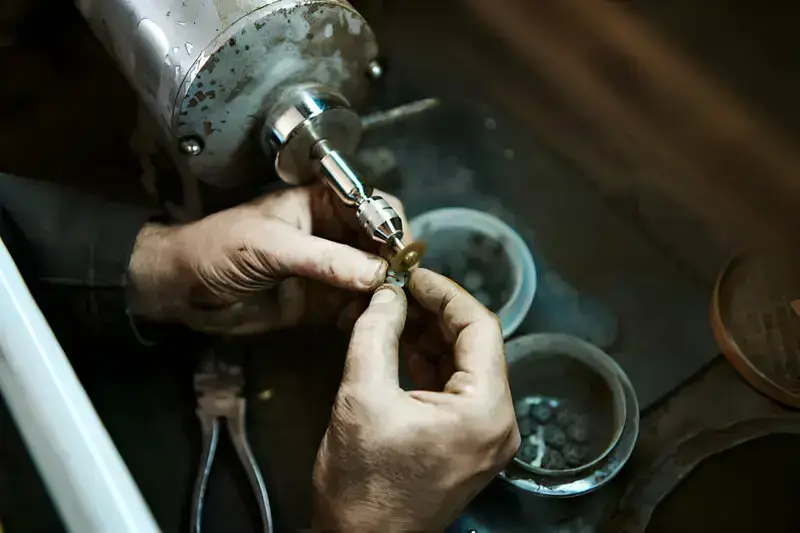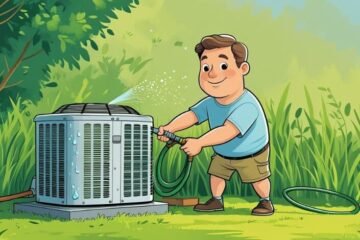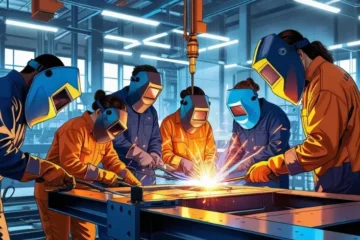Choosing the Right Coil Winding Machine for Your Application

Right Coil Winding Machine
In the realm of electrical engineering and manufacturing, coil winding machines play a crucial role in creating various types of coils used in transformers, motors, generators, and a plethora of other applications. Whether you are a small-scale manufacturer or a large industrial entity, selecting the right coil winding machine for your specific application is paramount to achieving optimal efficiency, productivity, and quality in your production process. In this guide, we’ll delve into the key factors to consider when choosing a coil winding machine tailored to your needs.
Understanding Coil Winding Machines
Before diving into the selection process, it’s essential to grasp the fundamentals of coil winding machines and their functionalities. At its core, a coil winding machine is a piece of equipment designed to wind wire or other conductive materials onto a form, creating coils of various shapes and sizes. These machines come in a range of configurations, from manual and semi-automatic to fully automated systems, each offering distinct advantages depending on the application requirements.
Key Factors to Consider
- Type of Coil: The type of coil you need to produce is the foremost consideration when selecting a winding machine. Coils vary in terms of size, shape, wire gauge, and complexity. For instance, a precision coil winding machine with programmable features would be ideal if you’re manufacturing small-scale coils with intricate designs. On the other hand, large-scale production of uniform coils may necessitate a high-speed automatic winding machine.
- Automation Level: Assess your production volume and requirements to determine the level of automation needed. Manual winding machines require operator intervention at every step, making them suitable for low-volume production or prototyping. Semi-automatic machines offer a balance between manual control and automation, enhancing productivity while providing flexibility for customization. Fully automated systems, equipped with advanced features such as CNC controls and robotic handling, are best suited for high-volume production lines where precision and efficiency are paramount.
- Accuracy and Precision: Precision is critical in coil winding to ensure consistent performance and adherence to design specifications. Look for machines equipped with precise tension control mechanisms, programmable winding parameters, and advanced monitoring systems to maintain tight tolerances throughout the winding process. Additionally, consider the repeatability and consistency of winding patterns, especially for intricate coil designs.
- Versatility and Flexibility: Anticipate future needs and opt for a winding machine that offers versatility and adaptability to accommodate evolving production requirements. Machines with modular designs or customizable features allow for easy reconfiguration to handle different coil types and sizes. Quick changeover capabilities and tooling options further enhance flexibility, enabling seamless transitions between different production runs.
- Production Speed: Production efficiency is directly influenced by the speed of the winding machine. Evaluate the machine’s winding speed capabilities in relation to your desired output rate. While high-speed machines offer faster cycle times and increased throughput, ensure that speed doesn’t compromise winding quality or accuracy. Strike a balance between speed and precision to optimize overall productivity.
- Ease of Operation and Maintenance: A user-friendly interface and intuitive controls streamline operation, reducing the learning curve for operators and minimizing downtime due to errors. Additionally, the accessibility of critical components for routine maintenance and servicing should be considered. Machines with robust construction and reliable components tend to have lower maintenance requirements, contributing to long-term reliability and cost-effectiveness.
- Quality Assurance Features: Look for built-in quality assurance features such as tension monitoring, wire break detection, and error detection systems to ensure consistent output quality and minimize waste. Real-time monitoring and feedback mechanisms enable timely adjustments and corrections, preventing defects and maximizing yield.
- Support and Service: Choose a reputable manufacturer or supplier that offers comprehensive support, training, and after-sales service. Timely technical assistance, spare parts availability, and preventive maintenance programs are essential for maximizing uptime and prolonging the lifespan of your coil winding machine.
- Space and Layout Requirements: Consider the available floor space in your production facility and the layout requirements for integrating the coil winding machine into your existing workflow. Larger, automated machines may require dedicated space and additional infrastructure such as power supply, ventilation, and material handling systems. Assess the compatibility of the machine with your facility layout to optimize workflow efficiency and ensure safety and ergonomics for operators.
- Material Compatibility and Handling: Evaluate the compatibility of the winding machine with different types of materials, including copper wire, aluminum wire, and specialty conductors. Consider the wire’s diameter, insulation, and handling characteristics to ensure smooth feeding, accurate winding, and minimal material waste. Machines equipped with tension control devices, wire guides, and spooling mechanisms enhance material handling capabilities and minimize the risk of damage or breakage during the winding process.
- Environmental Considerations: Take into account environmental factors such as temperature, humidity, and cleanliness requirements within your production environment. Certain coil winding applications, especially those in sensitive industries such as medical or aerospace, may require cleanroom-compatible machines with sealed enclosures and particle filtration systems to prevent contamination and ensure product integrity. Assess the machine’s environmental specifications and compatibility with your facility’s operating conditions to maintain optimal performance and product quality.
- Integration with Auxiliary Equipment: Consider the compatibility and integration capabilities of the coil winding machine with auxiliary equipment such as wire cutters, tapers, terminators, and testing devices. Seamless integration between multiple machines and peripheral equipment streamlines the production process, reduces manual handling, and minimizes production bottlenecks. Look for machines with standardized interfaces or customizable integration options to facilitate interoperability and expand functionality as needed.
- Energy Efficiency and Sustainability: Incorporate energy efficiency and sustainability considerations into your selection criteria to minimize operating costs and environmental impact. Choose machines equipped with energy-efficient motors, variable speed drives, and power management features to optimize energy consumption and reduce carbon footprint. Additionally, assess the machine’s material usage, recyclability, and eco-friendly manufacturing practices to align with your sustainability goals and corporate social responsibility initiatives.
- Regulatory Compliance and Standards: Ensure that the coil winding machine complies with relevant industry standards, regulations, and safety requirements to mitigate risks and ensure regulatory compliance. Look for machines certified by recognized authorities such as CE, UL, and ISO to demonstrate adherence to quality, safety, and performance standards. Additionally, consider any specific regulatory requirements applicable to your industry or target markets and verify that the machine meets or exceeds these standards to avoid costly compliance issues or product recalls.
- Total Cost of Ownership (TCO): Evaluate the total cost of ownership over the machine’s lifecycle, taking into account initial purchase price, operating expenses, maintenance costs, and potential downtime. While upfront costs are important, prioritize long-term value and return on investment by considering factors such as reliability, durability, productivity gains, and serviceability. Conduct a comprehensive cost-benefit analysis to assess the economic viability of different machine options and choose the option that offers the best balance of performance and affordability over time.
Conclusion
Investing in the right coil winding machine is a strategic decision that directly impacts the efficiency, quality, and competitiveness of your manufacturing operation.
By carefully evaluating factors such as the type of coil, automation level, accuracy, versatility, production speed, ease of operation, quality assurance features, and support services, you can choose a machine that aligns with your specific application requirements and long-term business objectives.
Whether you’re producing coils for automotive, aerospace, medical devices, or renewable energy systems, selecting the optimal coil winding machine is critical to achieving success in your industry. Read more










